#Hoodoo Voodoo
Text

I gave you the honorary equestria girl, now I give you the honorary lalaloopsy ✨
14 notes
·
View notes
Photo
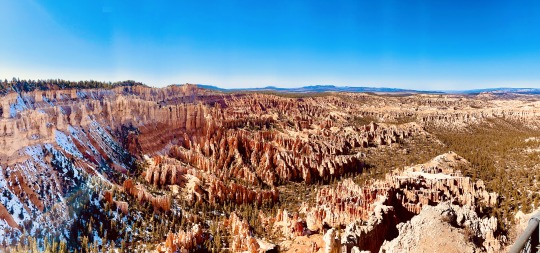
Amphitheater at Winter’s end, Bryce Canyon National Park, March 2021.
Photo credit @satashiiphotography
#iphone photos#Bryce Canyon National Park#utah#I’ve got my pack on my back#the mountains are calling#landscape photography#hoodoo voodoo
14 notes
·
View notes
Note
write. the. hockey. story. the people want it.
Do they? Do they really? Or are you using your influence to make people THINK they want it?? Hmmm....
2 notes
·
View notes
Photo
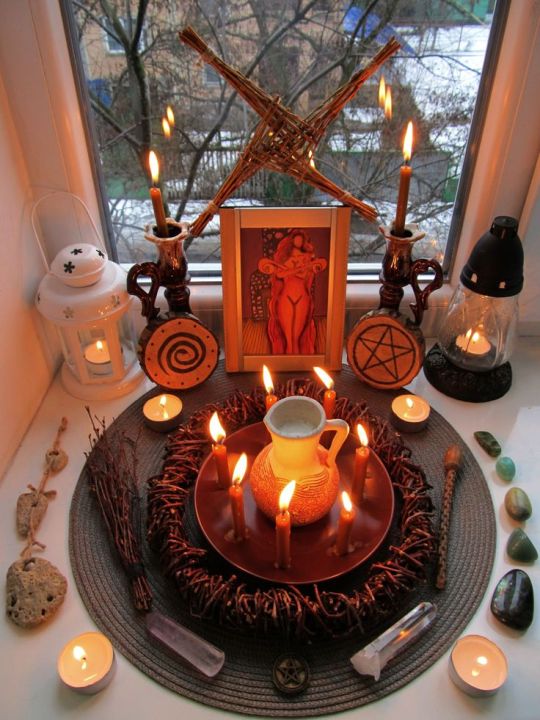
Always on your mind Spell. Custom Spell Work. This custom Voodoo Spell will keep their attention firmly on you. Keeps you front and centre in anothers thoughts and mind. Great if you are concerned your partners thoughts / mind to wandering elsewhere or you want to make sure an ex cannot get you out of their mind. Direct Message or email to discuss your custom Voodoo Spell needs. Purchases can be made via PayPal, Etsy or Bonanza.
#customspells#spells#spellwork#Voodoo spells#always on your mind#voodoo#Hoodoo Voodoo#fourcovens#etsyspells#instagramwitches
2 notes
·
View notes
Text
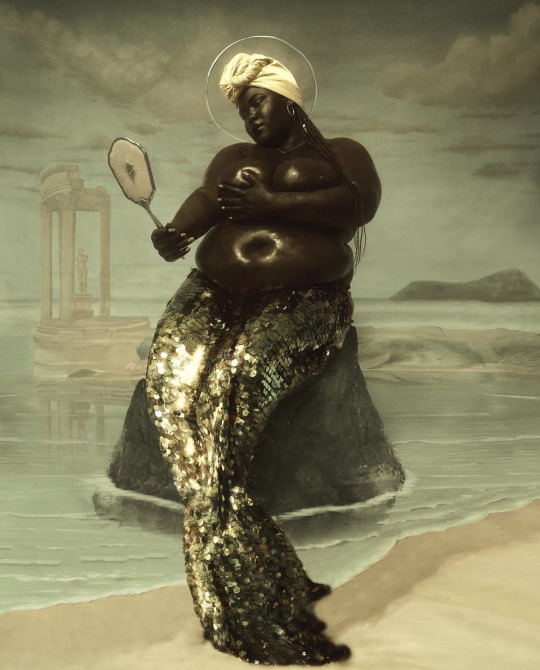
Naomi Native depicted as Oshun, Yoruba goddess of love, beauty, and fertility
Created by A.J. Hamilton
#beautiful black people#black mermaid#beautiful black woman#black woman#oshun#goddess#Yoruba goddess#goddess of love#sweet water#Naomi native#witches of color#black witch#afro witch#hoodoo#african american witch#voodoo#rootwork#pagans of color#bruja#conjure#santeria#witchcraft#sirens#mythical creatures#witches of tumblr#digital art#feminist art#fat black women#fat is beautiful#thicc goth
14K notes
·
View notes
Text
Reading list for Afro-Herbalism:
A Healing Grove: African Tree Remedies and Rituals for the Body and Spirit by Stephanie Rose Bird
Affrilachia: Poems by Frank X Walker
African American Medicine in Washington, D.C.: Healing the Capital During the Civil War Era by Heather Butts
African American Midwifery in the South: Dialogues of Birth, Race, and Memory by Gertrude Jacinta Fraser
African American Slave Medicine: Herbal and Non-Herbal Treatments by Herbert Covey
African Ethnobotany in the Americas edited by Robert Voeks and John Rashford
Africanisms in the Gullah Dialect by Lorenzo Dow Turner
Africans and Native Americans: The Language of Race and the Evolution of Red-Black Peoples by Jack Forbes
African Medicine: A Complete Guide to Yoruba Healing Science and African Herbal Remedies by Dr. Tariq M. Sawandi, PhD
Afro-Vegan: Farm-Fresh, African, Caribbean, and Southern Flavors Remixed by Bryant Terry
Barracoon: The Story of the Last “Black Cargo” by Zora Neale Hurston
Big Mama’s Back in the Kitchen by Charlene Johnson
Big Mama’s Old Black Pot by Ethel Dixon
Black Belief: Folk Beliefs of Blacks in America and West Africa by Henry H. Mitchell
Black Diamonds, Vol. 1 No. 1 and Vol. 1 Nos. 2–3 edited by Edward J. Cabbell
Black Faces, White Spaces: Reimagining the Relationship of African Americans to the Great Outdoors by Carolyn Finney
Black Food Geographies: Race, Self-Reliance, and Food Access in Washington, D.C. by Ashanté M. Reese
Black Indian Slave Narratives edited by Patrick Minges
Black Magic: Religion and the African American Conjuring Tradition by Yvonne P. Chireau
Black Nature: Four Centuries of African American Nature Poetry edited by Camille T. Dungy
Blacks in Appalachia edited by William Turner and Edward J. Cabbell
Caribbean Vegan: Meat-Free, Egg-Free, Dairy-Free Authentic Island Cuisine for Every Occasion by Taymer Mason
Dreams of Africa in Alabama: The Slave Ship Clotilda and the Story of the Last Africans Brought to America by Sylviane Diouf
Faith, Health, and Healing in African American Life by Emilie Townes and Stephanie Y. Mitchem
Farming While Black: Soul Fire Farm’s Practical Guide to Liberation on the Land by Leah Penniman
Folk Wisdom and Mother Wit: John Lee – An African American Herbal Healer by John Lee and Arvilla Payne-Jackson
Four Seasons of Mojo: An Herbal Guide to Natural Living by Stephanie Rose Bird
Freedom Farmers: Agricultural Resistance and the Black Freedom Movement by Monica White
Fruits of the Harvest: Recipes to Celebrate Kwanzaa and Other Holidays by Eric Copage
George Washington Carver by Tonya Bolden
George Washington Carver: In His Own Words edited by Gary Kremer
God, Dr. Buzzard, and the Bolito Man: A Saltwater Geechee Talks About Life on Sapelo Island, Georgia by Cornelia Bailey
Gone Home: Race and Roots through Appalachia by Karida Brown
Ethno-Botany of the Black Americans by William Ed Grime
Gullah Cuisine: By Land and by Sea by Charlotte Jenkins and William Baldwin
Gullah Culture in America by Emory Shaw Campbell and Wilbur Cross
Gullah/Geechee: Africa’s Seeds in the Winds of the Diaspora-St. Helena’s Serenity by Queen Quet Marquetta Goodwine
High on the Hog: A Culinary Journey from Africa to America by Jessica Harris and Maya Angelou
Homecoming: The Story of African-American Farmers by Charlene Gilbert
Hoodoo Medicine: Gullah Herbal Remedies by Faith Mitchell
Jambalaya: The Natural Woman’s Book of Personal Charms and Practical Rituals by Luisah Teish
Just Medicine: A Cure for Racial Inequality in American Health Care by Dayna Bowen Matthew
Leaves of Green: A Handbook of Herbal Remedies by Maude E. Scott
Like a Weaving: References and Resources on Black Appalachians by Edward J. Cabbell
Listen to Me Good: The Story of an Alabama Midwife by Margaret Charles Smith and Linda Janet Holmes
Making Gullah: A History of Sapelo Islanders, Race, and the American Imagination by Melissa Cooper
Mandy’s Favorite Louisiana Recipes by Natalie V. Scott
Medical Apartheid: The Dark History of Medical Experimentation on Black Americans from Colonial Times to the Present by Harriet Washington
Mojo Workin’: The Old African American Hoodoo System by Katrina Hazzard-Donald
Motherwit: An Alabama Midwife’s Story by Onnie Lee Logan as told to Katherine Clark
My Bag Was Always Packed: The Life and Times of a Virginia Midwife by Claudine Curry Smith and Mildred Hopkins Baker Roberson
My Face Is Black Is True: Callie House and the Struggle for Ex-Slave Reparations by Mary Frances Berry
My Grandmother's Hands: Racialized Trauma and the Pathway to Mending Our Hearts and Bodies by Resmaa Menakem
On Her Own Ground: The Life and Times of Madam C.J. Walker by A'Lelia Bundles
Papa Jim’s Herbal Magic Workbook by Papa Jim
Places for the Spirit: Traditional African American Gardens by Vaughn Sills (Photographer), Hilton Als (Foreword), Lowry Pei (Introduction)
Post Traumatic Slave Syndrome by Dr. Joy DeGruy
Rooted in the Earth: Reclaiming the African American Environmental Heritage by Diane Glave
Rufus Estes’ Good Things to Eat: The First Cookbook by an African-American Chef by Rufus Estes
Secret Doctors: Ethnomedicine of African Americans by Wonda Fontenot
Sex, Sickness, and Slavery: Illness in the Antebellum South by Marli Weiner with Mayzie Hough
Slavery’s Exiles: The Story of the American Maroons by Sylviane Diouf
Soul Food: The Surprising Story of an American Cuisine, One Plate at a Time by Adrian Miller
Spirituality and the Black Helping Tradition in Social Work by Elmer P. Martin Jr. and Joanne Mitchell Martin
Sticks, Stones, Roots & Bones: Hoodoo, Mojo & Conjuring with Herbs by Stephanie Rose Bird
The African-American Heritage Cookbook: Traditional Recipes and Fond Remembrances from Alabama’s Renowned Tuskegee Institute by Carolyn Quick Tillery
The Black Family Reunion Cookbook (Recipes and Food Memories from the National Council of Negro Women) edited by Libby Clark
The Conjure Woman and Other Conjure Tales by Charles Chesnutt
The Home Place: Memoirs of a Colored Man’s Love Affair with Nature by J. Drew Lanham
The Jemima Code: Two Centuries of African American Cookbooks by Toni Tipton-Martin
The President’s Kitchen Cabinet: The Story of the African Americans Who Have Fed Our First Families, from the Washingtons to the Obamas by Adrian Miller
The Taste of Country Cooking: The 30th Anniversary Edition of a Great Classic Southern Cookbook by Edna Lewis
The Tuskegee Syphilis Study: An Insiders’ Account of the Shocking Medical Experiment Conducted by Government Doctors Against African American Men by Fred D. Gray
Trace: Memory, History, Race, and the American Landscape by Lauret E. Savoy
Vegan Soul Kitchen: Fresh, Healthy, and Creative African-American Cuisine by Bryant Terry
Vibration Cooking: Or, The Travel Notes of a Geechee Girl by Vertamae Smart-Grosvenor
Voodoo and Hoodoo: The Craft as Revealed by Traditional Practitioners by Jim Haskins
When Roots Die: Endangered Traditions on the Sea Islands by Patricia Jones-Jackson
Working Conjure: A Guide to Hoodoo Folk Magic by Hoodoo Sen Moise
Working the Roots: Over 400 Years of Traditional African American Healing by Michelle Lee
Wurkn Dem Rootz: Ancestral Hoodoo by Medicine Man
Zora Neale Hurston: Folklore, Memoirs, and Other Writings: Mules and Men, Tell My Horse, Dust Tracks on a Road, Selected Articles by Zora Neale Hurston
The Ways of Herbalism in the African World with Olatokunboh Obasi MSc, RH (webinar via The American Herbalists Guild)
1K notes
·
View notes
Text
#hoodoo#voodoo#african spirituality#spiritual#spirituality#black power#knowledge#black knowledge#african#black magic
539 notes
·
View notes
Text
On September 10th we venerate Elevated Ancestor, Voodoo Queen of Louisiana, & Saint, Marie Catherine Laveau on her 222nd birthday 🎉
[for our Hoodoos of the Vodou Pantheon]

Marie Catherine Laveau was a dedicated Hoodoo, healer, herbalist, & midwife who, "traveled the streets [of New Orleans] like she owned them", as the most infamous Voodoo Queen of New Orleans.
Marie C. Laveau I was born a "Free Mulatto" in today's French Quarter in what was then, New France); to a mother & grandmother who were both born into slavery & later freed via freedom papers. It is believed that she grew up in the St. Ann Street cottage of her maternal grandmother.
She married Jacques Santiago-Paris, a "Quadroon" "Free Man of Color", who fled as a refugee from Saint-Domingue, Haiti from the Haitian Revolution in the former French colony . After his passing, she became known as "The Widow Paris". She then worked as a hairdresser catering to White families & later entered a domestic partnership with a French nobleman his death. She excelled at obtaining inside information on her wealthy patrons by instilling fear in their servants whom she either paid or cured of mysterious ailments. Although she never abandoned her Catholic roots, she became increasingly interested in her mother’s African traditional beliefs. The Widow Paris learned her craft from a ‘Voodoo doctor’ known variously as Doctor John or John Bayou.
Marie C. Laveau I is said to have intiated into Voodoo career sometime in the 1820s. She's believed to be descended from a long line of Voodoo Priestesses, all bearing her same name. She was also a lifelong devout Catholic. It didn’t take long before Marie C. Laveau I dominated New Orleans Voodoo culture & society before claiming title of Queen. She was the 3rd Voodoo Queen of NOLA - after Queen Sanité Dédé & Queen Marie Salopé. During her decades tenure, she was the premier beacon of hope and service to customers seeking private consultations - to aid in matters such as family disputes, health, finances, etc, created/sold gris gris, perforemed exorcisms. While her daughter Marie II was known for her more theatrical displays of public events, Marie C. Laveau I was less flamboyant in her persona. She conducted her work in 3 primary locations throughout the city: her home on St. Ann Street, Congo Square, & at Lake Pontchartrain. Despite one account of a challenge to her authority in 1850, Marie C. Laveau I maintained her leadership & influence.
The Queen died peacefully in her sleep in her ole cottage home on St. Ann Street. Her funeral was conducted according to the rite of the Catholic Church & in the absence of any Voodoo rites. To her Voodoo followers, she's venerated as a Folk Saint. In² addition to her Priesthood in Voodoo and title of Queen, she is also remembered for her community activism; visiting prisoners, providing lessons to women of the community, & doing ritual work for those in need.
She is generally believed to have been buried in plot 347, the Glapion family crypt in Saint Louis Cemetery No. 1, New Orleans. As of March 1st, 2015, there is no longer public access to St. Louis Cemetery No. 1. Entry with a tour guide is required due to continued vandalism & tomb raiding.
We pour libations & give her💐 today as we celebrate her for her love for & service to the people, through poverty, misfortune, bondage, & beyond.
Offering suggestions: flowers + libations at her grave, catholic hymns, holy water, gold rings/bracelets, money
‼️Note: offering suggestions are just that & strictly for veneration purposes only. Never attempt to conjure up any spirit or entity without proper divination/Mediumship counsel.‼️
#hoodoo#hoodoos#atr#atrs#the hoodoo calendar#conjure#rootwork#rootworkers#ancestor veneration#Marie c Laveau#Voodoo#Voodoo Queens#new orleans#new orleans Voodoo#Vodou Pantheon#Haitian Voodou
363 notes
·
View notes
Photo

The Scooby Doo Show
S01E09 - Mamba Wamba and the Voodoo Hoodoo (1976)
Hanna Barbera Productions
#mamba wamba and the voodoo hoodoo#the scooby doo show#daphne blake#mamba zombie#mamba wamba#alex super#hanna barbera
77 notes
·
View notes
Text

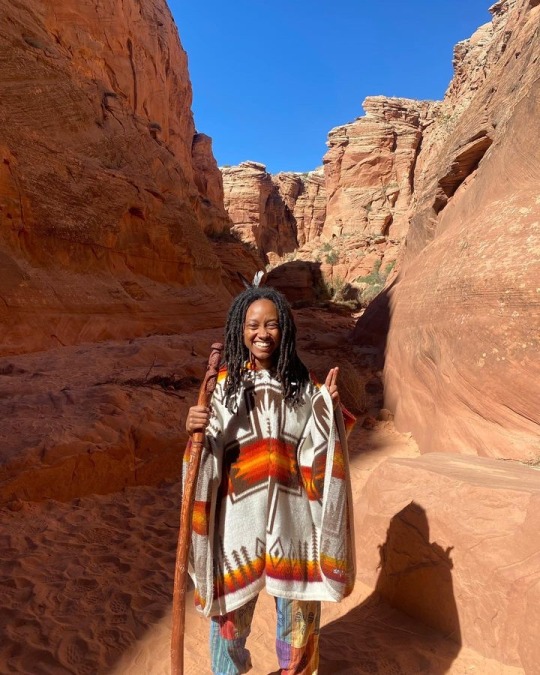
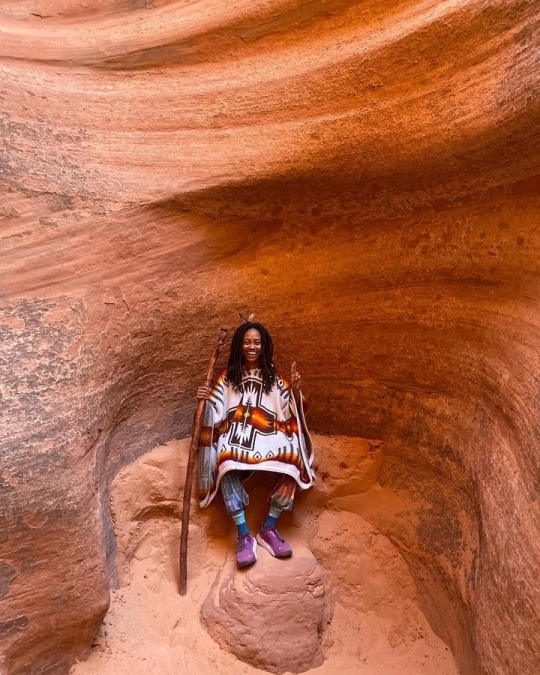
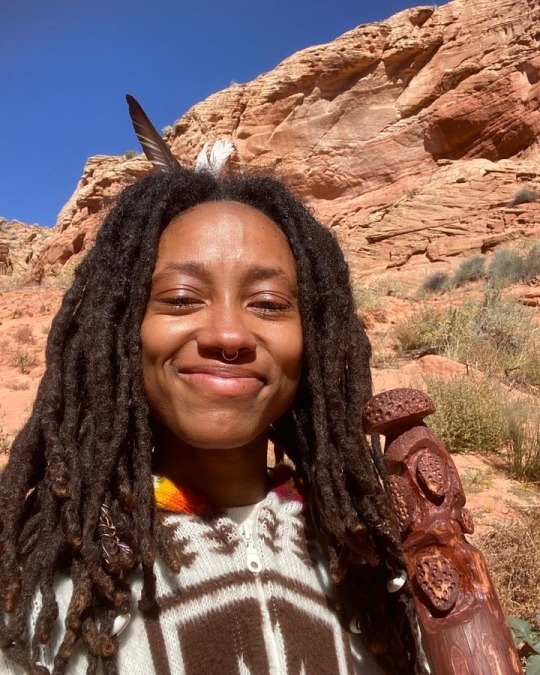


..Where you come to unlock main character energy 🙏🏾🧘♂️📿🕯️🌱
#help reblog Tumblr family ❤️
#goddess#hoodoo#ifa#priestess#religion#spirituality#universe#voodoo#witches#witchblr#orisa#orisha#daughter of the moon goddess#witches of tumblr#reading#consultation#spiritual cleansing#healing#spiritual awakening#spiritual development#spiritual disciplines#spiritualgrowth#spiritualjourney#god#tarot cards#tarotblr#tarorcards#tarotcommunity#tarot reading#tarot
122 notes
·
View notes
Text
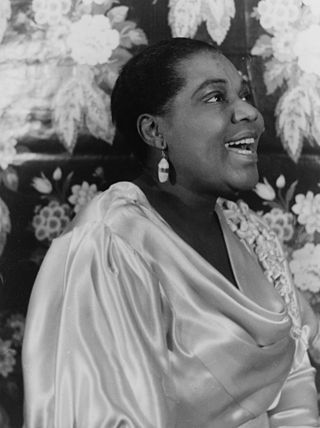
Several African American blues singers and musicians composed songs about the culture of Hoodoo, including W.C. Handy, Bessie Smith, Robert Johnson, Big Lucky Carter, and Al Williams. African American blues performers were influenced by the culture of Hoodoo and wrote songs about mojo bags, love workings, and spirits. Their songs brought awareness of Hoodoo practices to the American mainstream population.

Several blues songs describe love charms or other folk magic. In her "Louisiana Hoodoo Blues" Gertrude Ma Rainey sang about a Hoodoo work to keep a man faithful: ""Take some of you hair, boil it in a pot, Take some of your clothes, tie them in a knot, Put them in a snuff can, bury them under the step…." Bessie Smith's song "Red Mountain Blues" tells of a fortune teller who recommends that a woman get some snakeroot and a High John the Conqueror root, chew them, place them in her boot and pocket to make her man love her. Several other Bessie Smith songs also mention Hoodoo. The song "Got My Mojo Working," written by Preston "Red" Foster in 1956 and popularized by Muddy Waters throughout his career, addresses a woman who is able to resist the power of the singer's Hoodoo amulets.
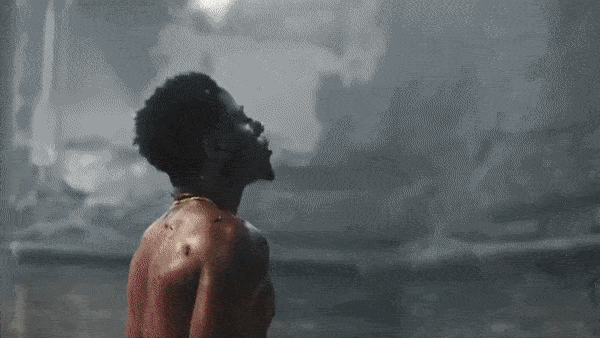
Hoodoo practitioner Aunt Caroline Dye was born enslaved in Spartanburg, South Carolina and sold to New Port, Arkansas as a child, where she became known for soothsaying and divination with playing cards. She is mentioned by name in the Memphis Jug Band's "Aunt Caroline Dye Blues" (1930) and in Johnny Temple's song "Hoodoo Woman" (1937).
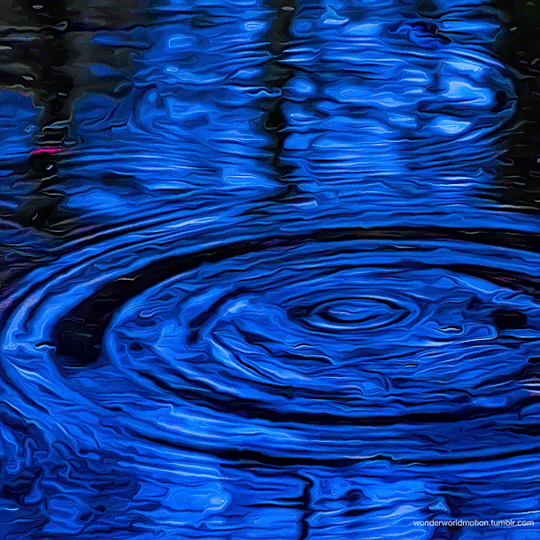
Blues singer Robert Johnson is known for his song about going "down to the crossroads" to sell his soul to the devil to become a better musician. Some authors suggest that the song invokes a Hoodoo belief in crossroads spirits, a belief that originated in Central Africa among the Kongo people. However, the devil figure in Johnson's song, a black man with a cane who haunts crossroads, closely resembles Papa Legba, a spirit associated with Louisiana Voodoo and Haitian Vodou

#blues music#memphis#vodun#voodoo#hoodoo#african#afrakan#kemetic dreams#africans#afrakans#brown skin#afrakan spirituality#african culture#rootwork#ancestor veneration#pagans of tumblr#conjure#witchblr#african music
57 notes
·
View notes
Text
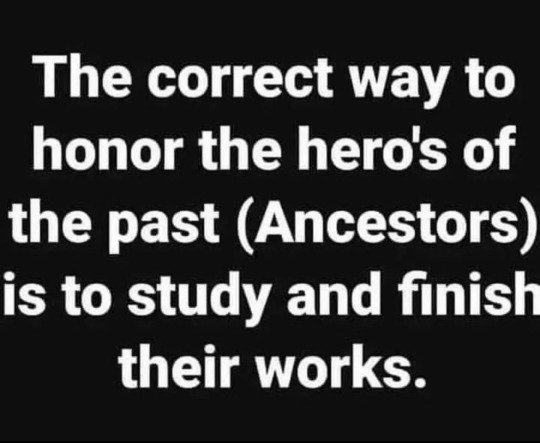
186 notes
·
View notes
Text
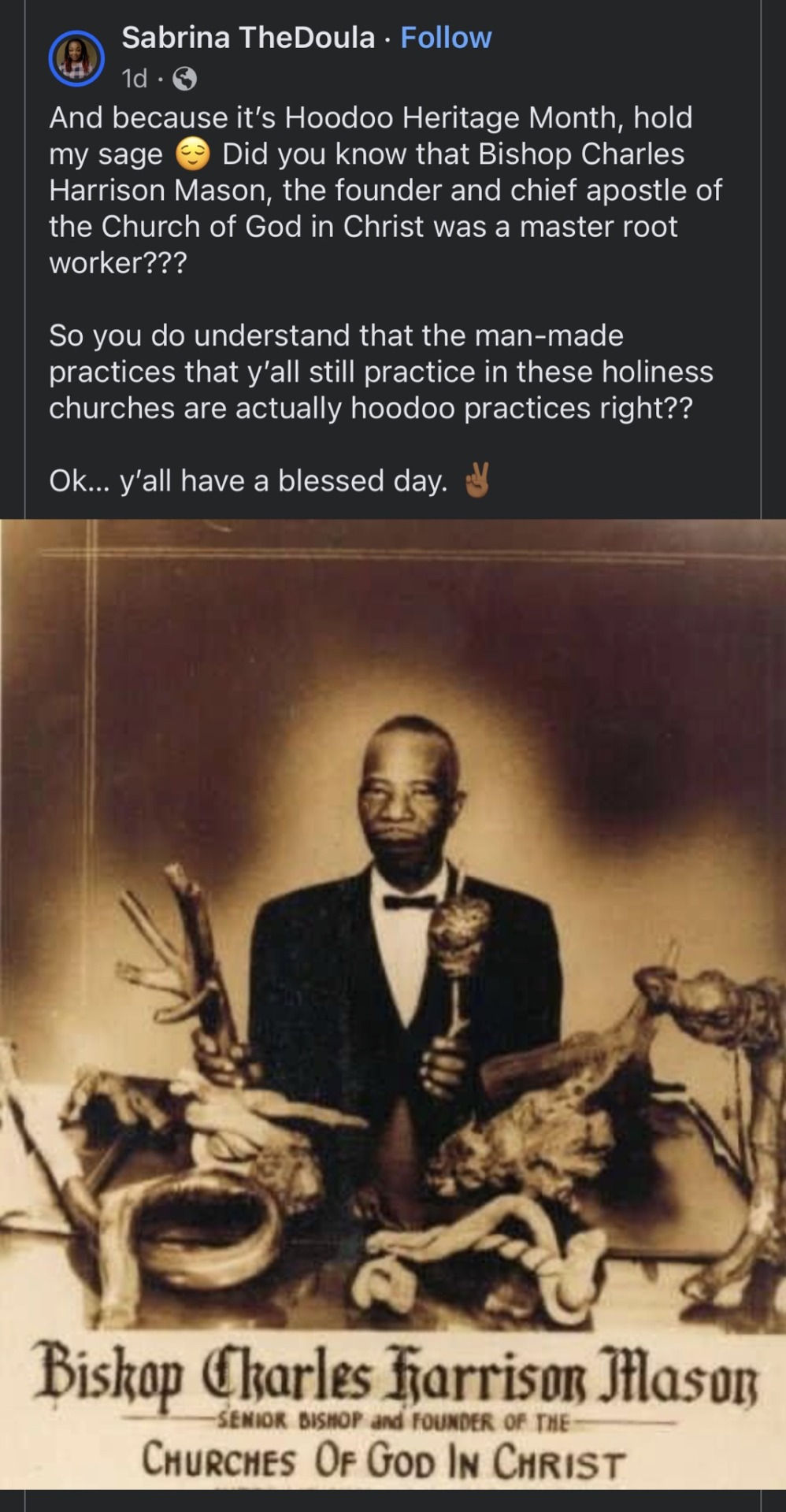
134 notes
·
View notes
Photo

Road Opener & Success Spell.
Removes Blockages. Double Spell Casting highly charged for attracting NEW opportunities, OBLITERATING tough obstacles and CLEARING your path to success. Message or email [email protected] to book your spell or discuss your requirements.
#removeobstaclesspells#blockageremoval#removeobstacles#witchcraftspells#hoodoo spells#Hoodoo Voodoo#hoodoo practitioner#witchcraft#fourcovens#success#success spell#successmindset#successful
1 note
·
View note
Text
So you want to learn about Louisiana Voodoo…
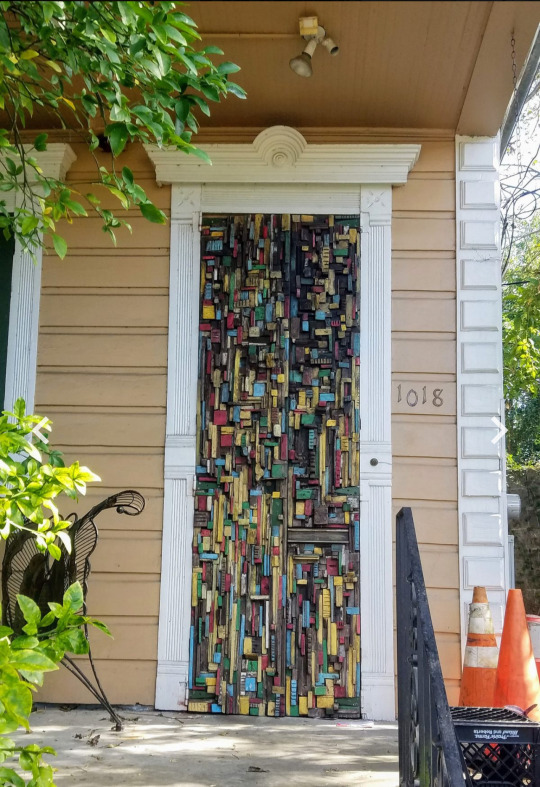
door in New Orleans by Jean-Marcel St. Jacques
For better or worse (almost always downright wrong) Louisiana Voodoo and Hoodoo are likely to come up in any depiction of the state of Louisiana. I’ve created a list of works on contemporary and historical Voodoo/Hoodoo for anyone who’d like to learn more about what this tradition is and is not (hint: it developed separately from Haitian Vodou which is its own thing) or would like to depict it in a non-stereotypical way. I’ve listed them in chronological order. Please keep a few things in mind. Almost all sources presented unfortunately have their biases. As ethnographies Hurston’s work no longer represent best practices in Anthropology and has been suspected of embellishment and sensationalism on this topic. Additionally the portrayal is of the religion as it was nearly 100 years ago- all traditions change over time. Likewise Teish is extremely valuable for providing an inside view into the practice but certain views, as on Ancient Egypt, may be offensive now. I have chosen to include the non-academic works by Alvarado and Filan for the research on historical Voodoo they did with regards to the Federal Writer’s Project that is not readily accessible, HOWEVER, this is NOT a guide to teach you to practice this closed tradition, and again some of the opinions are suspect- DO NOT use sage, which is part of Native practice and destroys local environments. I do not support every view expressed but think even when wrong these sources present something to be learned about the way we treat culture
*Start with Osbey, the shortest of the works. To compare Louisiana Voodoo with other traditions see the chapter on Haitian Vodou in Creole Religions of the Caribbean by Olmos and Paravinsi-Gebert. Additionally many songs and chants were originally in Louisiana Creole (different from the Louisiana French dialect), which is now severely endangered. You can study the language in Ti Liv Kreyol by Guillery-Chatman et. Al.
Le Petit Albert by Albertus Parvus Lucius (1706) grimoire widely circulated in France in the 18th century, brought to the colony & significantly impacted Hoodoo
Mules and Men by Zora Neale Hurston (1935)
Spirit World-Photographs & Journal: Pattern in the Expressive Folk Culture of Afro-American New Orleans by Michael P. Smith (1984)
Jambalaya: The Natural Woman's Book of Personal Charms and Practical Rituals by Luisah Teish (1985)
Eve’s Bayou (1997), film
Spiritual Merchants: Religion, Magic, and Commerce by Carolyn Morrow Long (2001)
A New Orleans Voodoo Priestess: The Legend and Reality of Marie Laveau by Carolyn Morrow Long (2006)
“Yoruba Influences on Haitian Vodou and New Orleans Voodoo” by Ina J. Fandrich (2007)
The New Orleans Voodoo Handbook by Kenaz Filan (2011)
“Why We Can’t Talk To You About Voodoo” by Brenda Marie Osbey (2011)
Mojo Workin': The Old African American Hoodoo System by Katrina Hazzard-Donald (2013)
The Tomb of Marie Laveau In St. Louis Cemetery No. 1 by Carolyn Morrow Long (2016)
Lemonade, visual album by Beyonce (2016)
How to Make Lemonade, book by Beyonce (2016)
“Work the Root: Black Feminism, Hoodoo Love Rituals, and Practices of Freedom” by Lyndsey Stewart (2017)
The Lemonade Reader edited by Kinitra D. Brooks and Kameelah L. Martin (2019)
The Magic of Marie Laveau by Denise Alvarado (2020)
In Our Mother’s Gardens (2021), documentary on Netflix, around 1 hour mark traditional offering to the ancestors by Dr. Zauditu-Selassie
“Playing the Bamboula” rhythm for honoring ancestors associated with historical Voodoo
Voodoo and Power: The Politics of Religion in New Orleans 1880-1940 by Kodi A. Roberts (2023)
The Marie Laveau Grimoire by Denise Alvarado (2024)
Voodoo: An African American Religion by Jeffrey E. Anderson (2024)
#I’ll continue to update as I find more sources#Please be respectful of other people’s religion#Louisiana Voodoo#Louisiana Hoodoo#In the case of authors behind a paywall or whom you do not wish to support I highly recommend your local library#I do not support every view but think even when wrong they present something to be learned about the way we treat culture#Voodoo#Hoodoo#conjure#rootwork#Books
37 notes
·
View notes
Text
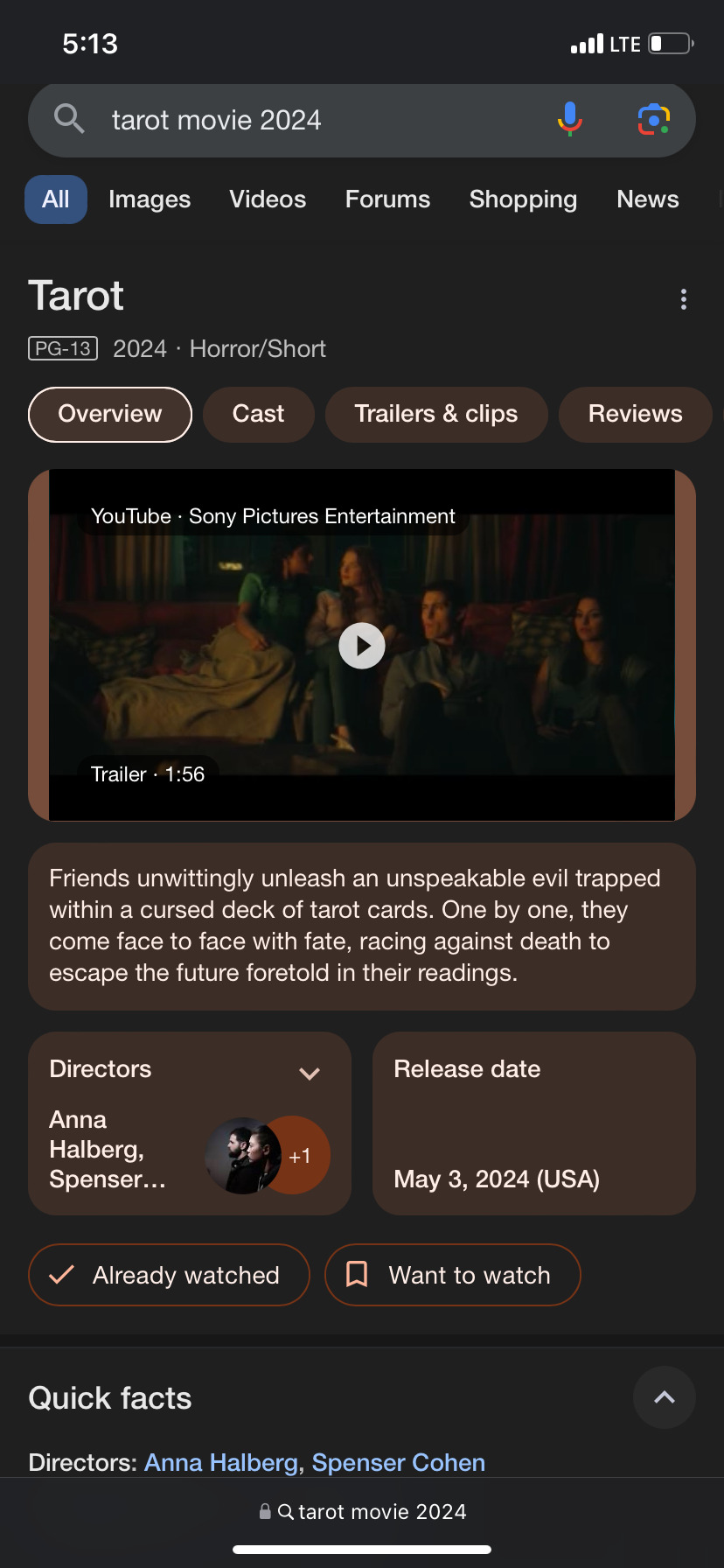
Community does not need this!! But they’re loud in the comments about how harmful this could be for the community and divination and other spiritual practices and traditions! Thankfully!! I was just talking about spiritual psychosis on my close friends on Instagram yesterday and then I see things like this and post just went viral of some woman absolutely losing it, snot running out her nose and everything over the eclipse.
The fear mongering and demonization of spiritual teachings, astrology, tarot and spiritual practices and traditions is about to start becoming very big. It was already a really prominent thing oppressors have used for ages especially against poc who practice forms of witchcraft or deity worship they brought with them from home. I was just watching a docu-series yesterday that highlighted how the native population on mt. Shasta were forced to leave and practiced ritual and held ceremonies in the caves of mount Shasta and those who colonized would go into those caves after they left and preform mockeries of their ceremonies and rituals as entertainment.
We’re about to step into a reality and time where spiritual people, practitioners and others within the community will be replacing celebrities and individuals of high rank or people who hold a lot of power in this world and I said before that the oppressor has a very specific recipe for oppression and trying to keep people (especially in the west) as unaware and as stuck in perpetual karmic cycles and systems as much as possible. And this is just yet another technique they use to discredit individuals with gifts. They use psychics and astrologers and others themselves to help them predict and interpret what’s coming.
They use these types of stories or ideas to fuel radical religious beliefs and ideas that are built upon fear mongering and hatred, they use religious institutions and manipulated versions of their Bible and beliefs and create division within the west. Vast majority of republicans are statistically uneducated and are conservative who hold onto heavy religious beliefs and views to back up, support and justify their actions and beliefs. Heavily similar to antebellum America and the justification of slavery and the mistreatment of African American people.
youtube
To add onto that, this movie about tarot does not accurately portray what tarot really is and how it works whatsoever but guess who’ll believe it and perpetuate it. Half the negative ideas that are swirling around about metaphysical, Wiccan or spiritual practices are due to pop culture and horror movies and the individuals who sit at their desks in the dark scribbling away these plots and releasing these movies.
#tarot movie#tarot community#divination#demonization of intuitives#demonization of spiritual practices#Youtube#santeria#bruja#hoodoo#voodoo#poc#poc in the United States#history of witchcraft#spiritual community#psychic intuitive#astrologers#fear mongering#the western world#oppression#colonization#project 2025#making America fucking shitty again#Biden#trump#conservatives#social media#movies#censorship#new earth#tarot cards
51 notes
·
View notes